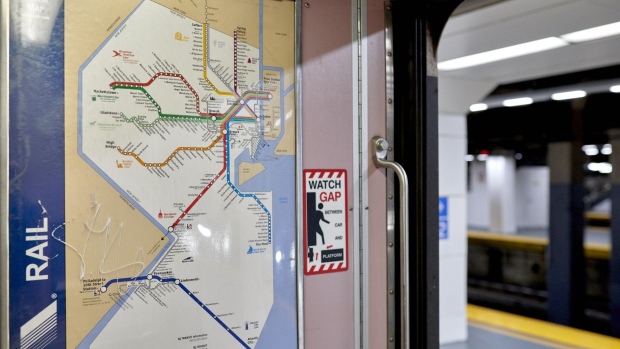Feb 9, 2022
NJ Transit Approves $2.6 Billion Budget as Ridership Climbs
, Bloomberg News

(Bloomberg) -- New Jersey Transit, eager to bring ridership back to pre-pandemic levels as commuters slowly return to the office, approved a $2.6 billion operating budget.
The budget, typically adopted each July, was delayed because of a disagreement over pandemic stimulus funds in the American Rescue Plan designated for New York, New Jersey and Connecticut.
Ridership is “showing signs of bouncing back,” following the latest Covid-19 surge, NJ Transit President and Chief Executive Officer Kevin Corbett said during a board meeting Wednesday.
Weekday rail usage is about 40% of pre-pandemic levels, up from about 30% during the height of the omicron surge, the agency said. Weekend train usage is up to about 50% of pre-covid levels, though that’s down from about 80% before the surge.
New Jersey Governor Phil Murphy, a Democrat in his second term, has promised to fix widespread fiscal and operating troubles at NJ Transit, the nation’s largest statewide mass-transportation provider. While the agency has hired more train engineers and bus drivers and made other improvements, it continues to lack a steady revenue source beyond fares, a demand by transit advocates.
Still, as more New York City train commuters have returned in recent weeks, on-time performance and reliability problems are increasing.
The agency in recent weeks has seen an uptick in delays due to Amtrak signal issues, equipment, and disabled trains at New York’s Penn Stations and due to weather related complications. Amtrak and NJ Transit share the Hudson River Tunnels in and out of New York City, which leads to pileups when complications arise.
The two transportation systems are looking to expand the Hudson River tunnels under the Gateway Program, a $12.4 billion project to modernize the Northeast Corridor’s New York and New Jersey commuter rail infrastructure and improve performance.
©2022 Bloomberg L.P.